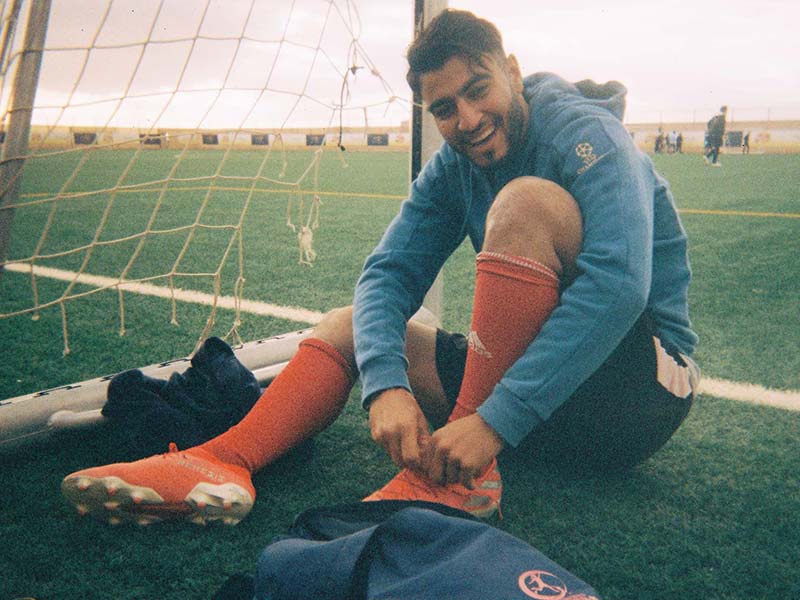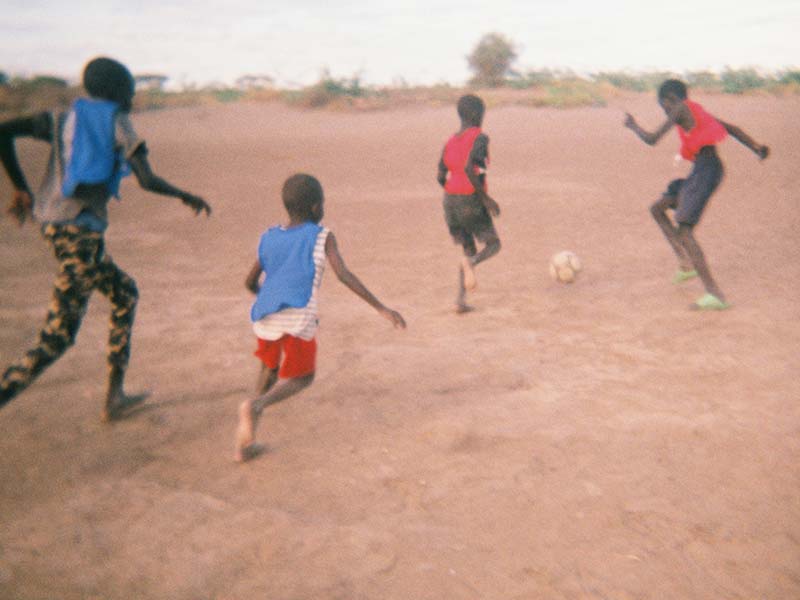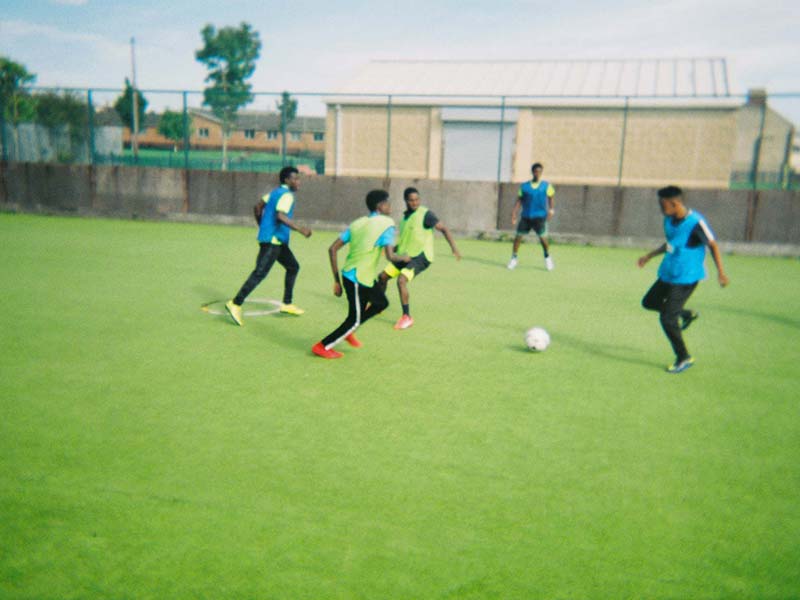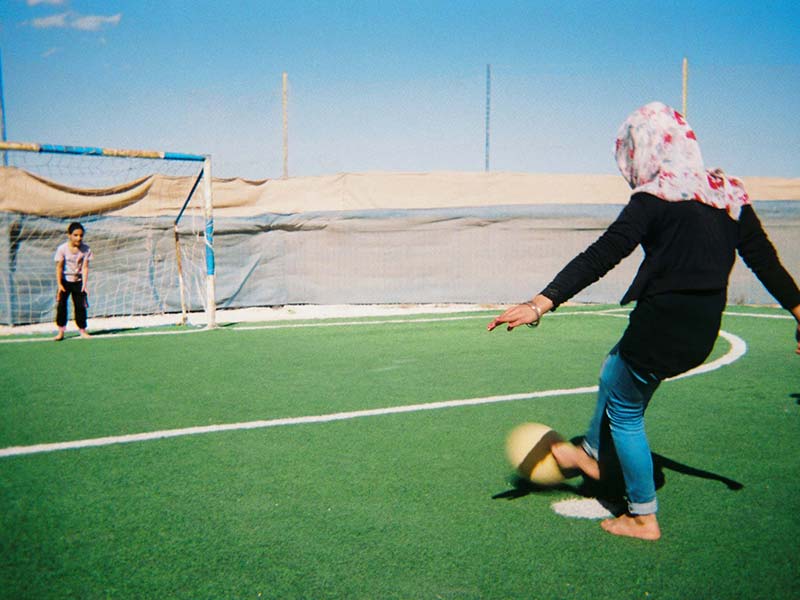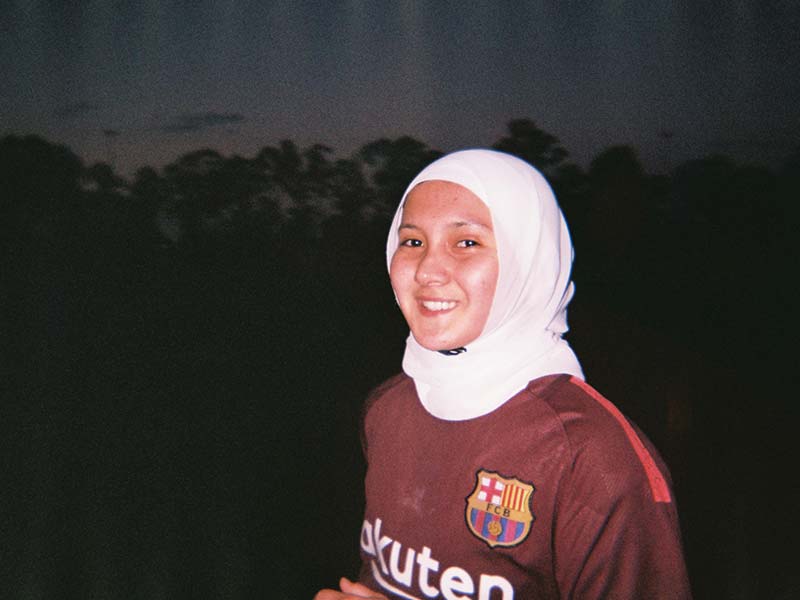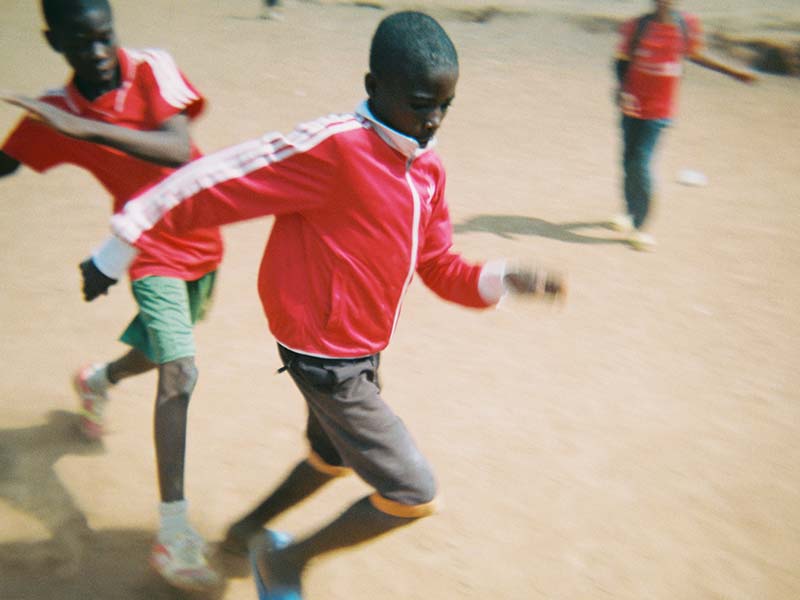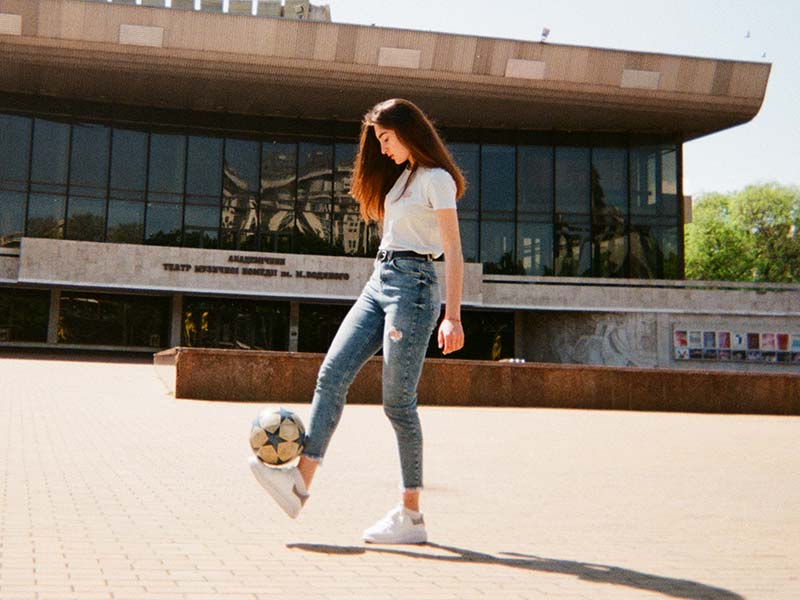In Conflict-Torn Eastern Ukraine, Football Offers a Path to Hope
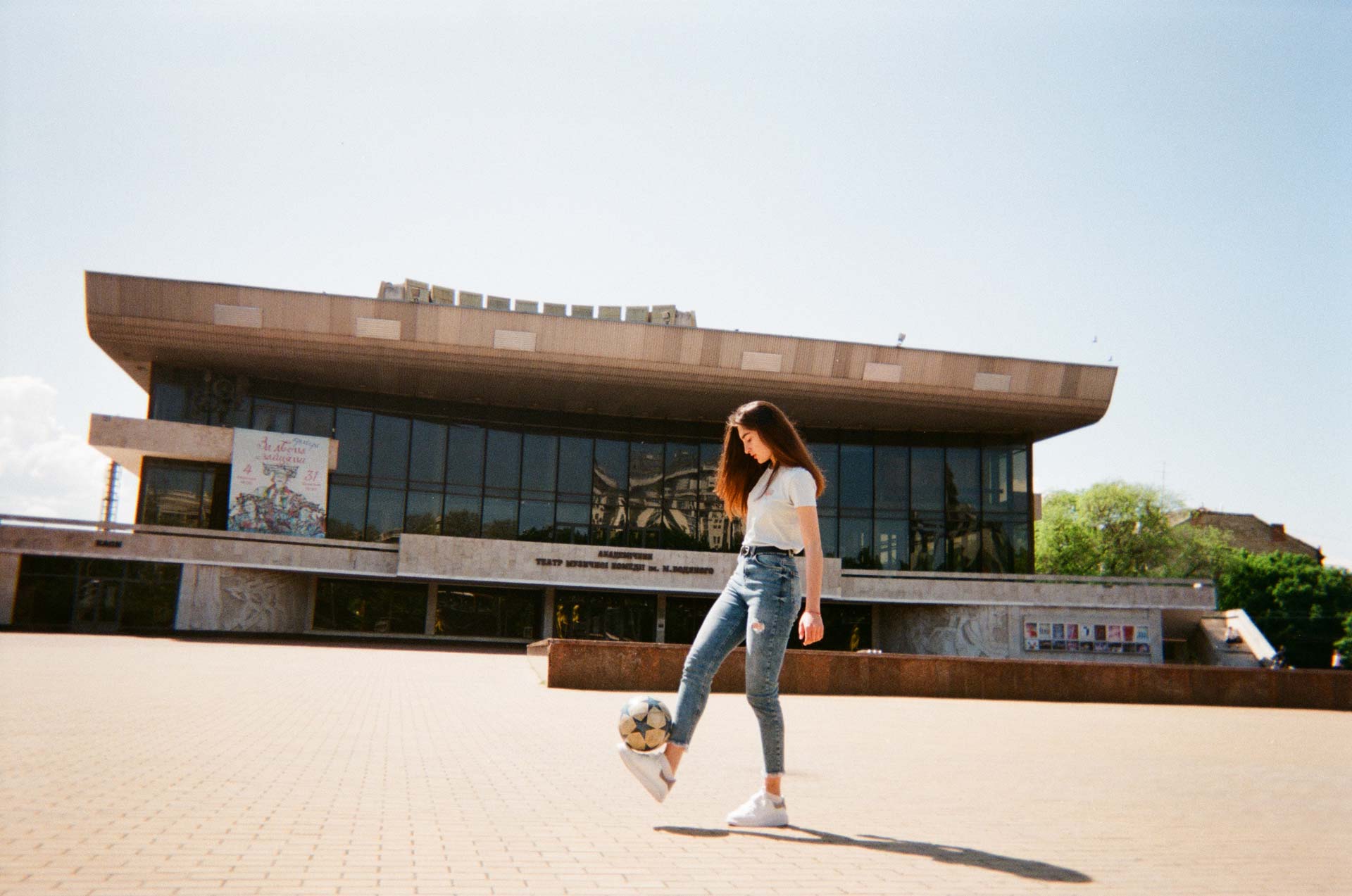
In Conflict-Torn Eastern Ukraine, Football Offers a Path to Hope
© Goal Click/UNHCR/Maria Romanchenko
The outbreak of a major armed conflict in eastern Ukraine in 2014 led to a large outflow of refugees into the region and continues generating humanitarian needs within the area. The conflict has uprooted millions of people, and many endure hardship and the threat of sudden death at home. In all, 3.4 million are in need of humanitarian assistance and protection. Over 55,000 residential buildings have been damaged during the conflict on both sides of the ‘contact line’ in east Ukraine. Almost 40 per cent of people who live in the Donetsk and Luhansk regions have experienced trauma resulting in stress, depression, anxiety and post-traumatic stress disorder as a result of the violence, according to a recent study.
UNHCR, the UN Refugee Agency, has been working in Ukraine since 1994 and established a country office the following year. UNHCR monitors persons of concern and intervenes directly to protect refugees, asylum-seekers, and internally displaced people providing material, social and medical assistance to the most vulnerable. UNHCR assists refugees in Ukraine to find durable solutions facilitating their voluntary repatriation, local integration, and resettlement to third countries. At the end of 2019, there were 60,000 Ukrainian refugees worldwide.
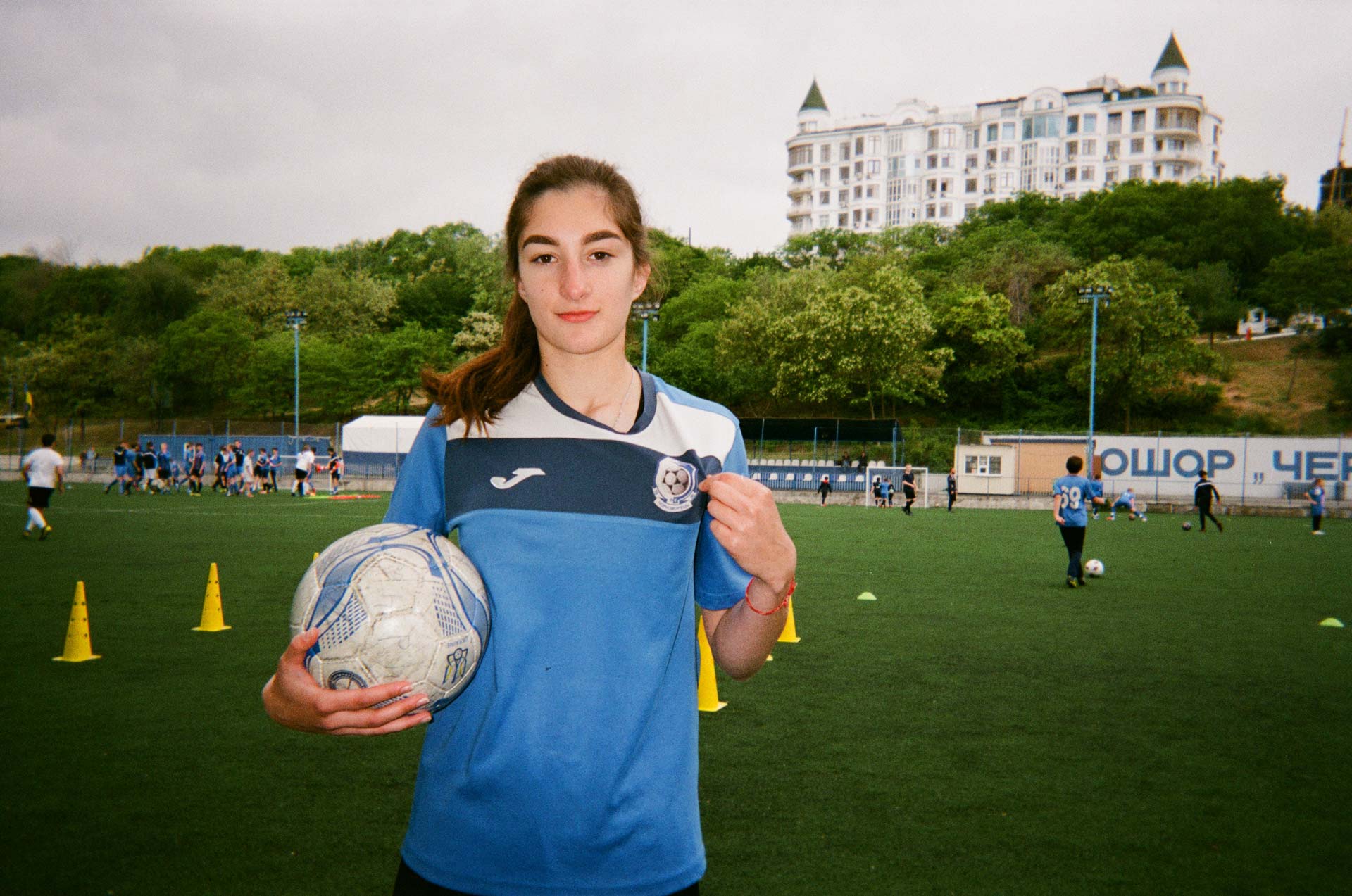
© Goal Click/UNHCR/Maria Romanchenko
‘Football gave me a lot: friends, endurance, character and determination’
My name is Maria Romanchenko, I am 17 and originally from Enakievo in the Donetsk region of eastern Ukraine. I am a player for FC Chernomorets Odesa women’s team in the first division of Ukraine. Since childhood I loved football, I always played with the boys in the yard, though basically I stood at the gate. But after moving, life turned out differently and now I am a striker.
At 11, I moved to Odesa and for two years I did not realize that there was professional women’s football in Ukraine. But in the 7th grade, at a physical education lesson, a girl noticed me during a game and suggested that I practice more seriously. After a while, I met my coach and started going to training. After two months, I was part of the team that went to the Under-14 Ukrainian Championship. I scored my first goal and took the team to the final. In this Championship, I was named “Best Striker”. This started my professional career in football. My goal is to get a contract with and play for a European or American team in the future.
I left my home due to the situation in my hometown of Enakievo in the Donetsk region. My parents did not want me to be in danger and saw everything that was happening there. But sometimes I go there to visit my friends and relatives. I go home once every six months. I look forward to every meeting with my relatives and friends, because we miss each other very much, but we often call and chat on the Internet. At the moment, everything is fine in my city, but I’m still worried. The main difficulty is that it is hard to get there.
© Goal Click/UNHCR/Maria Romanchenko
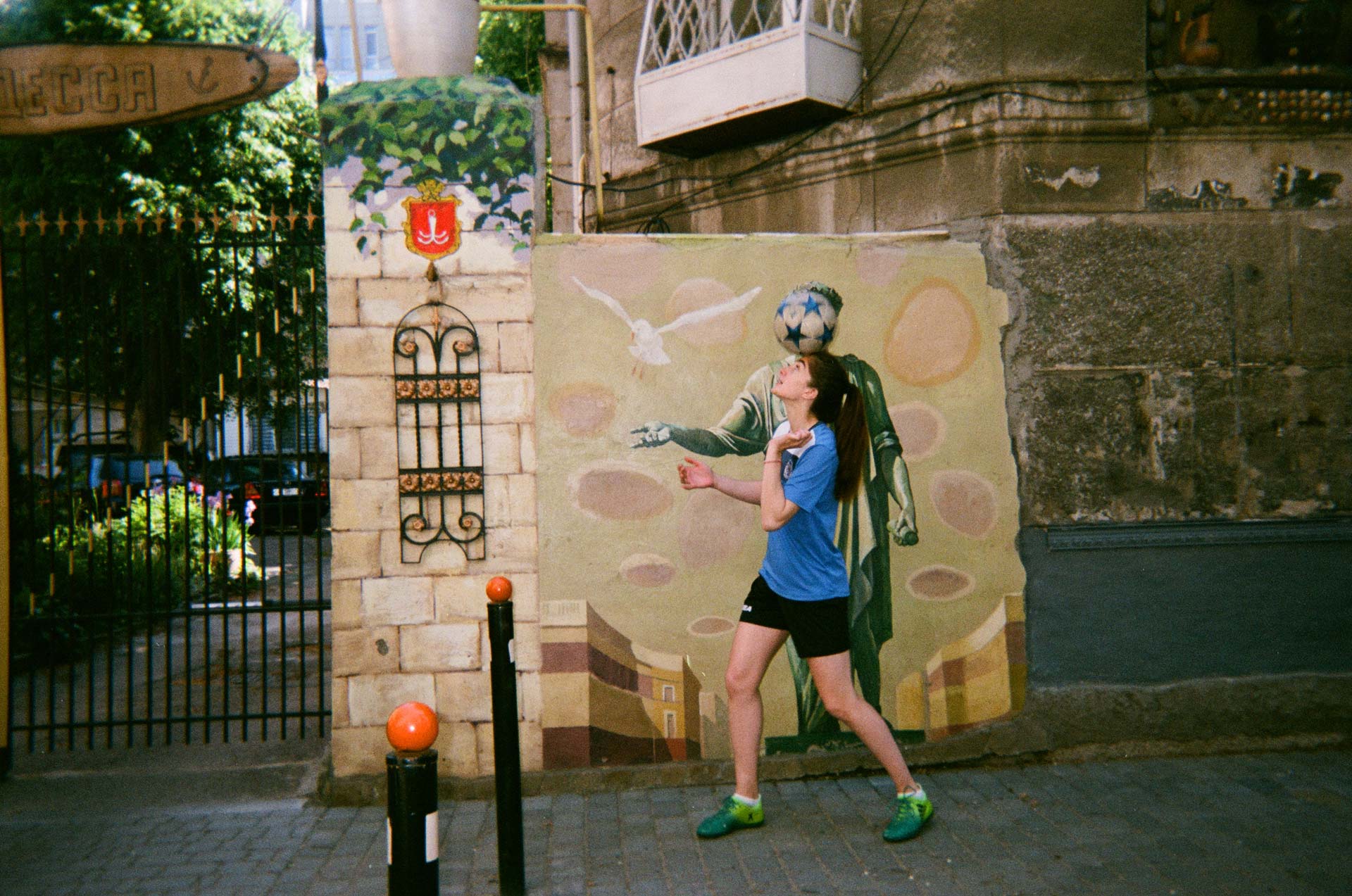
© Goal Click/UNHCR/Maria Romanchenko
At 11, I moved to Odesa and for two years I did not realize that there was professional women’s football in Ukraine. But in the 7th grade, at a physical education lesson, a girl noticed me during a game and suggested that I practice more seriously. After a while, I met my coach and started going to training. After two months, I was part of the team that went to the Under-14 Ukrainian Championship. I scored my first goal and took the team to the final. In this Championship, I was named “Best Striker”. This started my professional career in football. My goal is to get a contract with and play for a European or American team in the future.
I left my home due to the situation in my hometown of Enakievo in the Donetsk region. My parents did not want me to be in danger and saw everything that was happening there. But sometimes I go there to visit my friends and relatives. I go home once every six months. I look forward to every meeting with my relatives and friends, because we miss each other very much, but we often call and chat on the Internet. At the moment, everything is fine in my city, but I’m still worried. The main difficulty is that it is hard to get there.
Many of my photos were taken during a training session on the FC Chernomorets Odesa football field. Other photos were captured on the streets of Odesa. You can see the Odesa Academic Theatre of Musical Comedy, the Odesa National Academic Opera and Ballet Theatre, the new Istanbul Park, and the Vorontsov Palace Colonnade.
Photo: © Goal Click/UNHCR/Maria Romanchenko
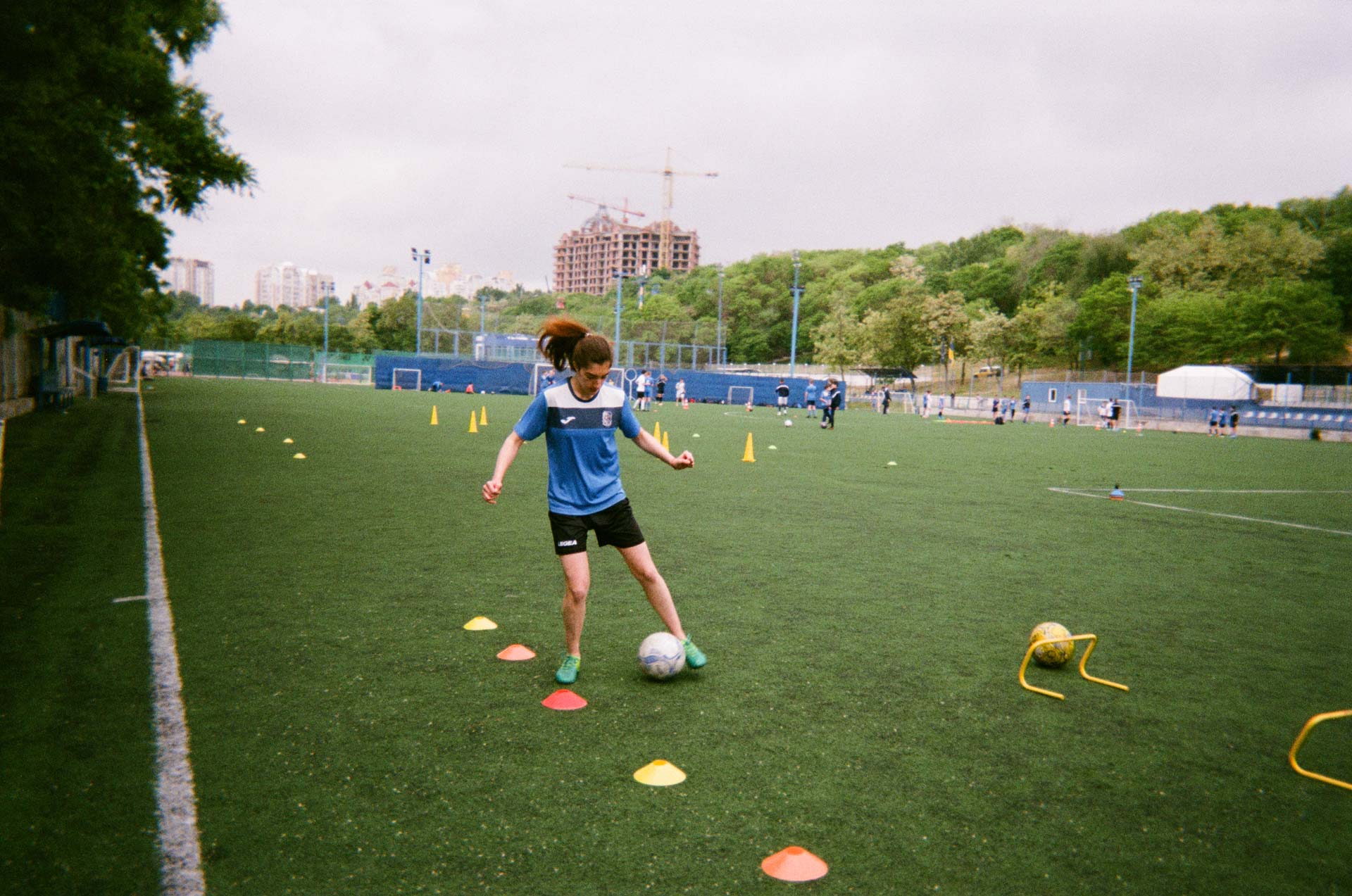
© Goal Click/UNHCR/Maria Romanchenko
Many of my photos were taken during a training session on the FC Chernomorets Odesa football field. Other photos were captured on the streets of Odesa. You can see the Odesa Academic Theatre of Musical Comedy, the Odesa National Academic Opera and Ballet Theatre, the new Istanbul Park, and the Vorontsov Palace Colonnade.
The photos were taken during lockdown. Since everything in the city was closed, I mainly trained at home. Of course, you can’t run around with the ball at home, so sometimes I went out into the yard and practiced shots.
Photo: © Goal Click/UNHCR/Maria Romanchenko
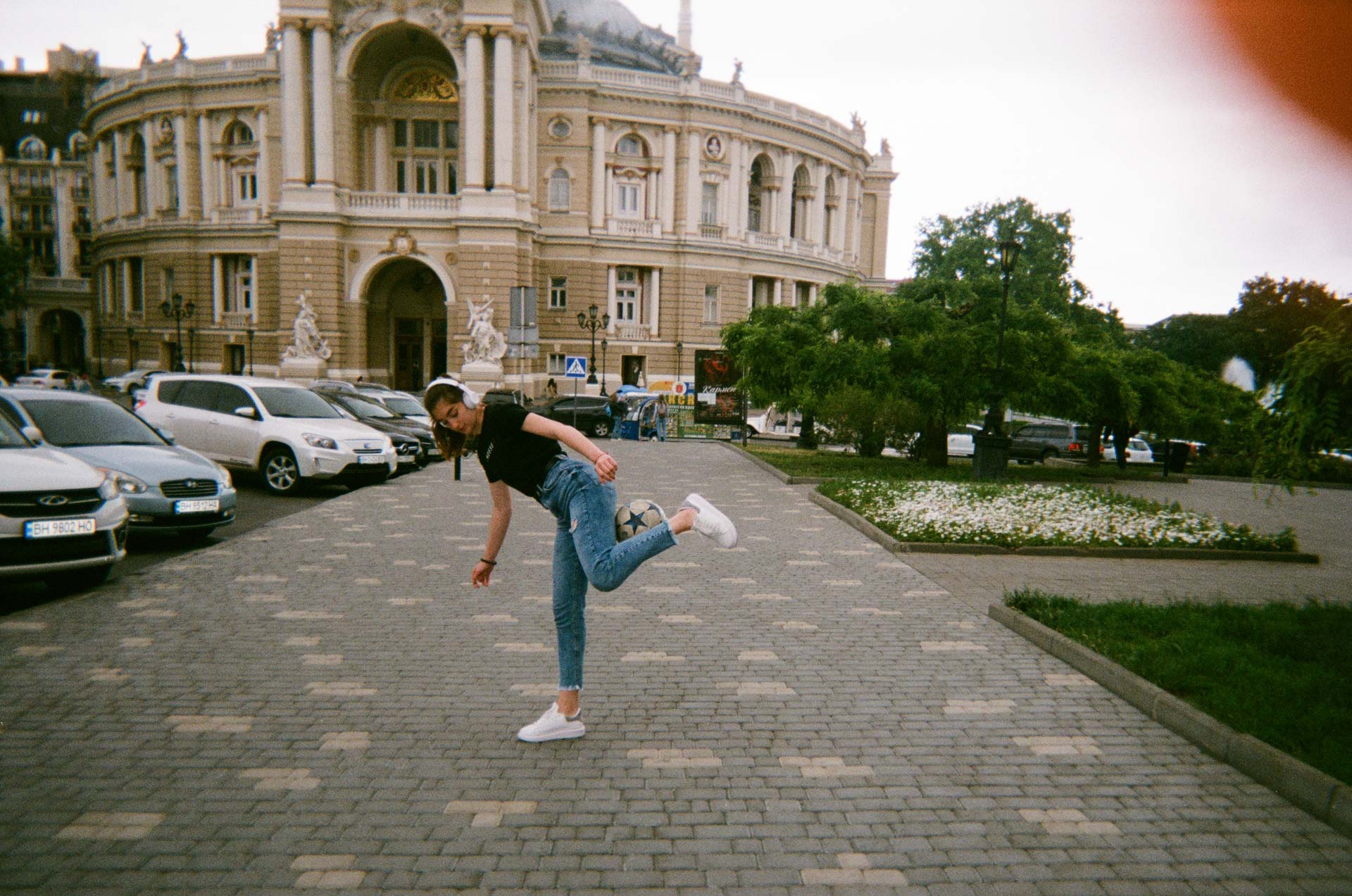
© Goal Click/UNHCR/Maria Romanchenko
The photos were taken during lockdown. Since everything in the city was closed, I mainly trained at home. Of course, you can’t run around with the ball at home, so sometimes I went out into the yard and practiced shots.
I wanted to show the main attractions of my adopted city and the stadium where my training takes place. Every place is very important to me. I wanted to show my city, where I study, where I improve my skills, and where I became an athlete. In Odesa, I fulfilled my dream – I started playing football professionally.
Photo: © Goal Click/UNHCR/Maria Romanchenko
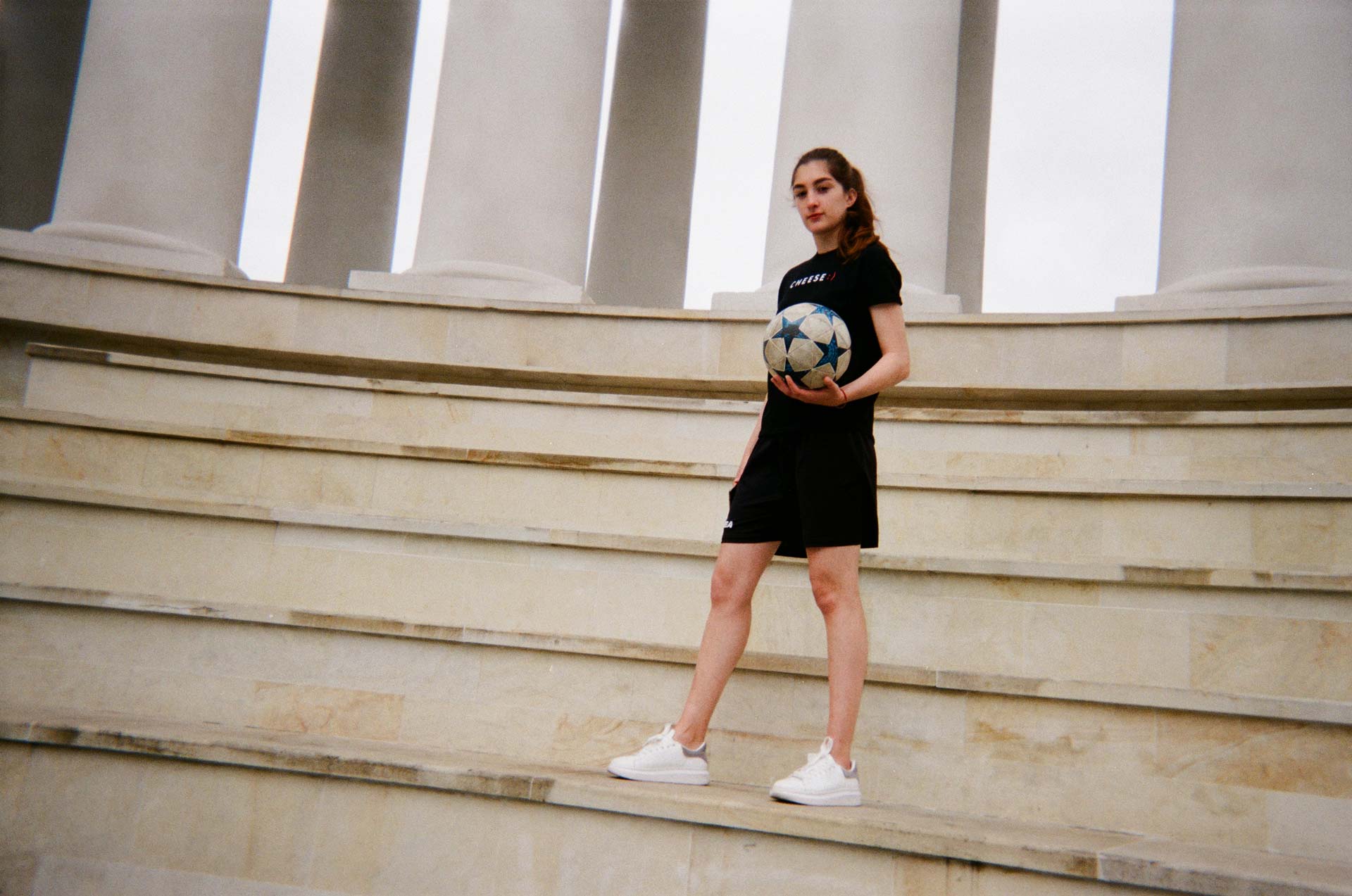
© Goal Click/UNHCR/Maria Romanchenko
I wanted to show the main attractions of my adopted city and the stadium where my training takes place. Every place is very important to me. I wanted to show my city, where I study, where I improve my skills, and where I became an athlete. In Odesa, I fulfilled my dream – I started playing football professionally.
Football is my passion. Each workout is important to me. I love to feel the power in myself and give it my all in every game. Football gave me a lot: friends, endurance, character and determination. This is something that I will never tire of doing. With the help of football, I maintain my physical and spiritual health.
Photo: © Goal Click/UNHCR/Maria Romanchenko
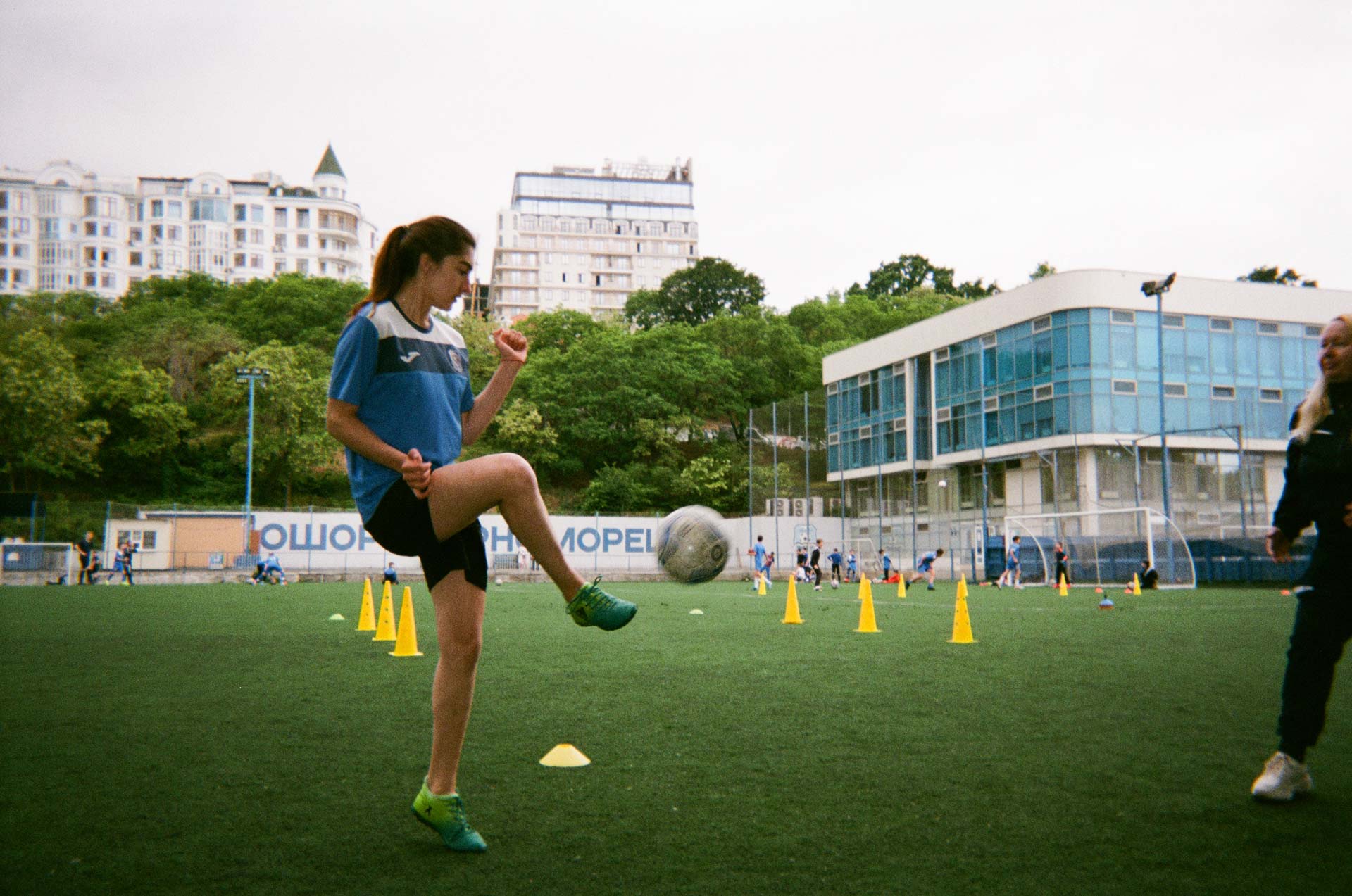
© Goal Click/UNHCR/Maria Romanchenko
Football is my passion. Each workout is important to me. I love to feel the power in myself and give it my all in every game. Football gave me a lot: friends, endurance, character and determination. This is something that I will never tire of doing. With the help of football, I maintain my physical and spiritual health.
When I first joined the team, I immediately started talking with the girls and we became very good friends. My team and I love to get together with other people from different schools, universities or even cities and compete with them.
Photo: © Goal Click/UNHCR/Maria Romanchenko
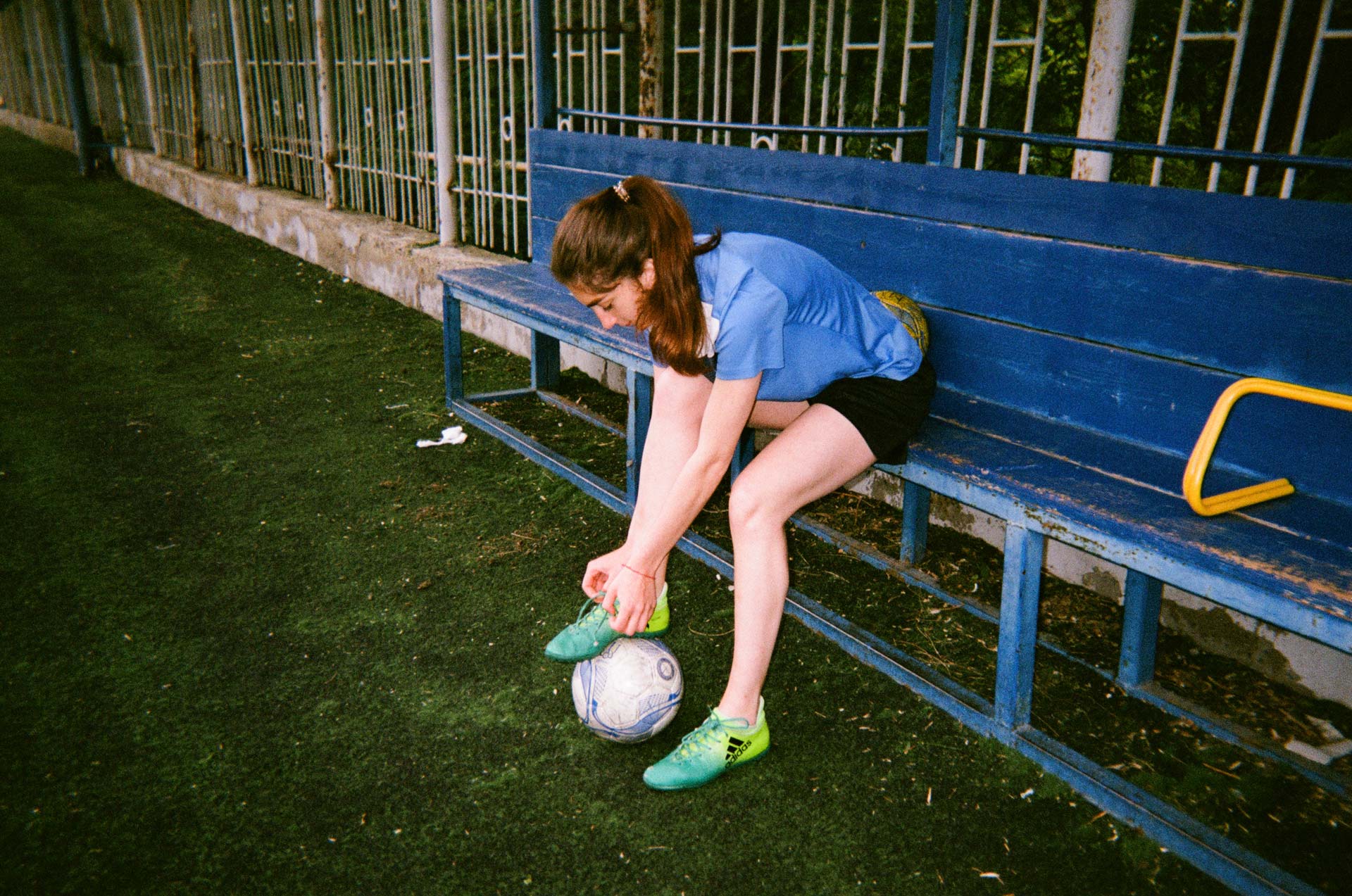
© Goal Click/UNHCR/Maria Romanchenko
When I first joined the team, I immediately started talking with the girls and we became very good friends. My team and I love to get together with other people from different schools, universities or even cities and compete with them.

